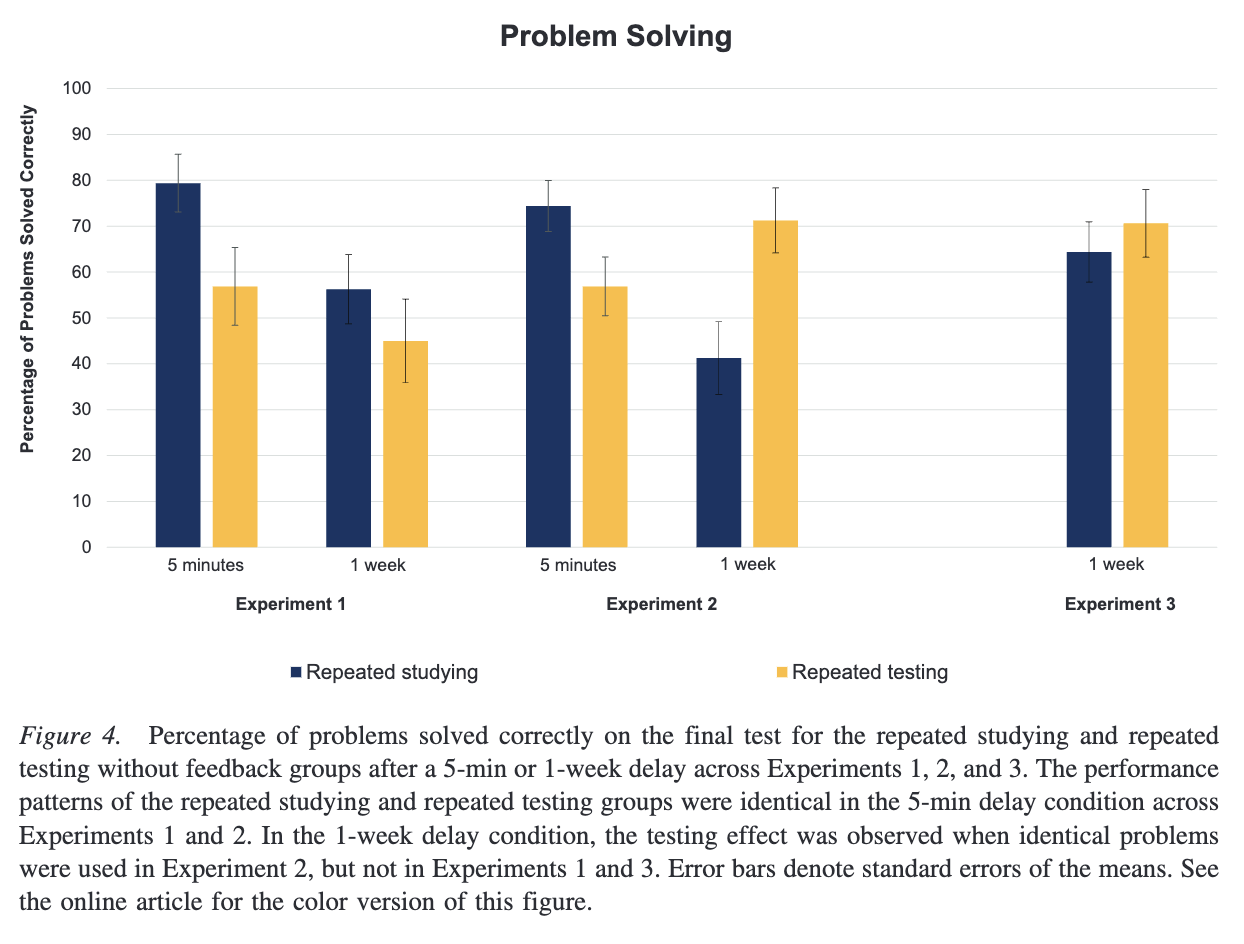Andyʼs working notes
About these notesYeo, D. J., & Fazio, L. K. (2019). The optimal learning strategy depends on learning goals and processes: Retrieval practice versus worked examples. Journal of Educational Psychology, 111(1), 73–90
How do the Testing effect and Worked example effect interact? Should one study worked examples or engage in retrieval practice? The authors run several experiments, focused on problem-solving.
They find:
- testing is better than studying when you’re simply trying to reproduce a worked example verbatim (no surprise there)
- for being able to solve new problems:
- studying is better than testing when the retrieval interval is quite short
- testing is better than studying for longer retrieval intervals
- but only testing with identical problem formats, not when the same problem “form” was presented in a variety of guises, even when learners were explicitly instructed with each problem to use the same procedure as with the earlier example they’d been given
- the dominance of studying over testing for varied problems was higher when problem-solving success was lower (i.e. problems were harder)
- however, there was some suggestive evidence that performance on transfer problems is lower when identical problems are studied/tested
- this suggests that if the ultimate goal is both flexibility and retention, you want a mixture
The big takeaway for me here is: particularly when problems are difficult, you’ve got to do more than just repeatedly try to solve problems. The authors note that the details of what’s best to do seem complicated—depending on the retention interval and the learning goals. But if, in general, one wants to learn things durably and flexibly, then things may not be so complicated.
When long-term retention was crucial (i.e., on a 1-week delayed test), repeated testing was as effective as repeated studying with nonidentical learning problems (that may enhance schema induction), but more effective than repeated studying with identical learning problems (that may enhance fluency building).
It’s a shame that the repeated testing is massed here, rather than distributed. It makes it a bit harder to understand the implications in a practical learning context, where you’re studying over time and attempting to retain over time.
